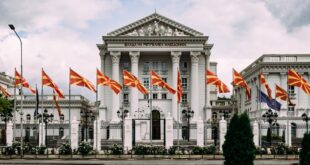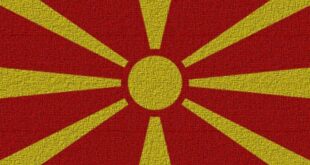Macedonia on Friday marks the ninth anniversary since the signing of the Ohrid Framework Accord which ended the 2001 armed conflict between Macedonian security forces and ethnic Albanian insurgents.
The agreement prevented the conflict turning into an all-out ethnic civil war and paved the way for Macedonia to become a multi-ethnic society with the goal of becoming part of the EU and NATO.
“The Agreement and relevant constitutional provisions remain indispensible to building a peaceful, just and cohesive multiethnic society”, the EU delegation in Skopje, NATO, the Organisation for Security and Co-operation in Europe, OSCE and the US embassy wrote in their joint statement marking the occasion.
Urging all stakeholders in the country to remain true to the accord “in letter and spirit” they noted further work needed to be done to secure the continuation of the process.
They requested more effort in ensuring the equitable representation of ethnic Albanians in the state administration, army and police, decentralisation, which would provide more power to the local communities, and education in order to foster integration and good inter-ethnic relations.
The Ohrid document, signed by the late Macedonian President Boris Trajkovski and the leaders of the four key political parties from the Macedonian and ethnic-Albanian camps, foresaw constitutional changes providing greater rights and institutional integration for the ethnic-Albanian minority in the country.
Albanians make roughly one quarter of the Macedonian population.
The document was signed and guaranteed by the special representatives of the EU and US.
Since, its implementation has become a central condition in the country’s bid for NATO and EU membership.
The armed conflict in Macedonia started on February 2001 when the guerillas of the National Liberation Army (NLA) seized control of the village of Tanusevci near the border with Kosovo.
Over the next few months fighting spread to areas near the northern towns of Kumanovo and Tetovo and close to the capital Skopje.
The conflict ended with several thousands of internally displaced persons and clamed the lives of more than 60 Macedonian soldiers and policemen. The exact number of casualties among NLA remains unknown to this day.
Shortly after the conflict ended, the leaders of the Albanian guerillas became politicians, founding the Democratic Union for Integration, DUI, which entered coalition government after the September 2002 elections.
DUI is now the largest ethnic Albanian party in Macedonia, and junior partner of the governing coalition with the centre-right VMRO DPMNE party.
Thanks to the peace made in 2001, Macedonia was able to mark progress in the following years.
The country got an EU candidate member status in 2005 and last year the European Commission recomended start of its acession talks.
Based on the progress made since 2001, NATO in 2008 concluded that the country was ready to join its ranks.
However, Macedonia’s bid to join both organisations is stalled due to the unresolved row with neighbouring Greece over its name.
 Eurasia Press & News
Eurasia Press & News



